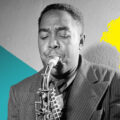Kintsugi: On Two New Collections by Simeon Berry

Reading Simeon Berry’s Ampersand Revisited and Monograph one after the other, one has the sense of a continuum marked with lacunae. Although Ampersand Revisited is Berry’s third manuscript and Monograph his seventh, they are his first books to be published. Both came out this year—the former winning the 2013 National Poetry Series and the latter winning the same prize in 2014. Where Ampersand Revisited turns its lens on a young man coming of age in a dysfunctional family, Monograph charts the disillusionment of young adulthood and the course of a failed relationship. Both volumes treat their subject with a tenderness that neither idealizes nor condemns.

Ampersand Revisited
by Simeon Berry
Softcover, $18.95
Fence Books, 2015
Poet Ariana Reines writes that Ampersand Revisited speaks through the “Mallarmean page.” This quality is most apparent in the spatial arrangement of the poems: from ragged lines that relax their length across the page to tightly latticed windows of words. Berry writes for the eye as well as the ear. The chimeric variations in shape are suitable vehicles for meandering chains of thought, crafted in ornate language, and snatches of discontinuous memory that ebb and flow.
Throughout the shifting text, however, runs a narrative of boyhood, masculinity, family, sexuality, and spiritualism. The book starts from the perspective of a ten-year-old with a crush on his older brother’s girlfriend. Casually, almost without effort, the tone shifts from innocence to insinuated predation:
Often she would repeat her conditional wish to me:
If only you were older…
She hid behind my body before I even knew it existed.
Here and throughout Ampersand Revisited, the reader is invited into intimate, uncomfortable moments. The reader is made both voyeur and collaborator. Berry reveals this explicitly, later in the volume:
Perhaps the reason why I’ve been drawn to the direct address all these years
is because you can talk to the beloved & the reader
without each one knowing
about the other.
Readers of poetry both know and do not know the situation; they are part of the story, but also at a remove. Knowingly—wryly—Berry writes a few pages later, “You’ll notice that I keep leaving things out.” Now who is the “you” addressed here, the beloved or the reader? It must be both. Berry’s use of pronouns is slippery: for a large portion of the book, the second-person “you” is neither the beloved nor the reader, but the boy at the center of the story—the “I.” His pronouns further trouble whatever distinction can be made between the reader and the subject.
Thus the reader-voyeur gets occasional glimpses into the personal narrative of boyhood, but never has access to the whole picture. Slowly, however, over the course of Ampersand Revisited, a patchwork portrait of an American family emerges: a conservative, staunch, New England grandfather who “gets elegiac about bathtub gin & plays Scott Joplin on the piano.” A photographer father who taught at Yale before he became a spiritual healer. A depressed mother who engages an in affair with a cocaine dealer. A younger brother and an older brother who each come of age in their own ways. The family is fractured, imperfect. Berry writes:
Your mother tells you sourly
that the family is fallen Yankee aristocracy, & you
smirk.
Elsewhere, the mother is said to give a
litany every holiday of how
you & your brothers have
ruined the past 20 years of
her life.
Berry paints the dissolution of the family with a gallows humor at times—there is something grimly funny about the father figure taking a “divorce vacation.” If Tolstoy is right, and each unhappy family is unhappy in its own way, then Berry provides the distinct thumbprint of one particular unhappy family that also feels universal. The details may vary; the archetype is very familiar.
Just because there is dysfunction, however, does not eliminate the possibility of love, particularly in the boy’s relationship with his father. Berry writes:
The best time is during the
odd, medicinal hours you spend with your father in
his darkroom.
The intellectual, artistic father, drawn to the occult, healing, and reading minds, offers a positive alternative to the cold machismo of the Puritan grandfather. Masculinity haunts both books like a curse. Berry critiques the grandfather’s model of maleness in Monograph, as well. He writes, “I tend to think of masculinity itself as / a type of minor catastrophe.”
In Ampersand, the boy develops not only an alternate model of maleness from his father but also a penchant for the occult, and he brings this with him to boarding school where he bemuses his teachers. There is adolescent posturing here and the sense that the boy is deliberately crafting a persona:
It’s a lot of work, this
sustained weirdness. You
hope someone notices.
Berry here pokes fun at the Holden Caulfield model of adolescence: over-sensitivity and a kind of carefully crafted artifice that masquerades as authenticity. At the same time, it’s clear that he feels honestly misplaced, an outsider.
In both volumes, this sense of being outside—of not quite fitting in—manifests in the struggle between the corporeal world and the realm of words, which rises close to the realm of spirit. Language holds out the possibility for transcendence. The personae of Ampersand Revisited and Monograph both struggle with this:
Spend too much time outside
the body & you become like
a paragraph, transitory &
fictional.
Words are dangerous. When the poet writes about his loved ones, they are changed by the very act of writing. They become a fiction or at least a forged memory, a made thing, a crafted object. At the same time, words provide comfort, and for one balanced moment the speaker finds, “I don’t hate being / in the poem / or my body”.

Monograph
by Simeon Berry
Softcover, $16.95
University of Georgia Press, 2015
This boy carrying the weight of words becomes the adult speaker of Monograph. This second book feels both like a continuation and a break from Ampersand Revisited. Formally, it is almost a reversal: the myriad shapes of the first book are replaced by prose-poems centered on the page, little bricks of lyrical flash fiction. Monograph certainly draws something from Raymond Chandler, with its spare and unassuming conversational language—a dramatic shift away from the ornate flourishes of Ampersand. The short paragraphs almost read like diary entries, characters referred to in shorthand with initials: N., and Z., and E.
The thread of family persists through Monograph: the ghost of the grandfather, and the father and mother known intimately from Ampersand Revisited, all return. The occultism of father and son, the mother’s affair: Berry uses the same wry color palette in his treatment of them. Speaking of the grandfather he writes, “He—like / other New England fishermen—/could not swim. These are the people I come from.” Elsewhere: “I imagine [a] Yankee relationship with the land—formal, mythic, futile—is what drove my grandfather to wear a tie when he pulled up lobster traps in his rowboat.” This is the model of grim, cartoonish maleness against which the speaker constantly pushes back.
His family, however, takes a backseat to the arch of a love story—with a one-time radical lesbian—that ultimately ends, badly, in dissolution, the speaker signing the divorce papers at the end of the book and asking, “Am I going to be one of those / divorced people with an empty loft?” (This is as funny, in the same sad way, as his father’s “divorce vacation” in the first book.)
As in his first book, Berry treats his subjects—broken families and failed relationships—with a certain gentle care that borders on fondness. He is fond of his pain and the perambulations of his past. They are beautiful in their imperfection. Towards the end of Monograph, he talks about his lover N.’s scar with this same tenderness:
I liked it because it made me think of the Japanese art of kintsugi. When a work of ceramic broke, they would inlay the cracks with gold, and find it more beautiful afterward, because it existed in time now and had a history.
Practicing his own form of kintsugi, Berry draws the fractured pieces of the past together into a mosaic whole, conjuring language into existence. The page is his ceramic: this is where imperfect shards of memory will be made corporeal and complete and beautiful. If he is making a kind of kintsugi, he is making a physical form—both literally, as in marks of ink on paper, and metaphorically—with his words and his thoughts. The cerebral and corporeal worlds cannot be so easily separated. “My brain,” Berry writes, “is / my place of business.”
The speaker’s relationship with N., the focus of Monograph, shares this tension between the world and the word. Sex, too, becomes cerebral:
I am tied to a chair, and, in the darkness, I hear her recite Kierkegaard and Hegel while she slowly reduces herself to lace and elastic and visits various pleasing depredations upon me.
N. recites philosophy; he tells her stories before bed; he is turned on by her stories of being on the debate team. He shares with her the occultist Dion Fortune’s notion of Logos; she shares with him Joan Didion’s conception of womanhood. The man and woman are drawn together because of a shared world of words, meaning, and symbols. The ugliness of the physical world, however, intrudes. N.’s family, with a mean alcoholic father—another broken toy of modern masculinity—mirrors the dysfunction in the speaker’s own past. The couple lie, fight, and lose. And yet, Berry makes something beautiful of the pieces.
There is a voyeuristic edge to both Ampersand Revisited and Monograph, but more often one feels privileged to have this crafted look into an intimate, sad, funny, smart, esoteric, and tender life. In both excellent books, Berry welcomes the reader into his world—which bears the distinctive imprints of his personal history—his complex and semi-mystical relationship with words and thought. Accept the invitation.
About Nora Delaney
Nora Delaney is a poet, translator, and critic. She received her PhD from the Editorial Institute of Boston University. Her writing can be found in Literary Imagination, Two Lines Online, Absinthe: New European Writing, Subtropics, Pusteblume, Little Star, Fulcrum, The Arts Fuse, and elsewhere.





